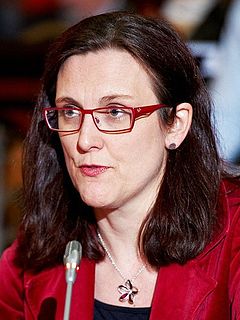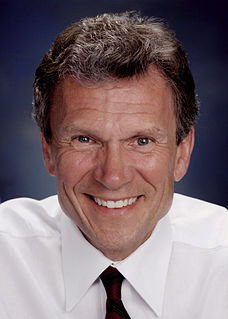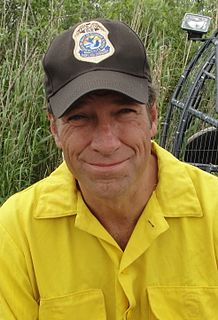A Quote by Hanna Rosin
Green jobs - those are jobs that feel like new economy jobs; they do require some training.
Related Quotes
Twenty million jobs is what we call for in the Green New Deal, which is essentially a New Deal focused on greening the economy on an emergency basis. So it's 20 million jobs, which are mixed, private sector, nonprofits, government jobs where others will not do the job and will not create the employment.
In a changing world, some jobs disappear and new ones are created. That's how it has been for hundreds of years. When jobs disappear, the vast majority is not because of global trade, but because of technical advances, robotization and so on. So, we - and in particular, EU member states - have to invest more in training and education so that people will have new opportunities if their jobs are cut. The EU can also better utilize its investment and social funds to protect its citizens from swift changes.
Look at what's happening between Main Street and Wall Street. The stock market index is up 136 percent from the bottom. Middle class jobs lost during the correction: six million. Middle class jobs recovered: one million. So therefore we're up 16 percent on the jobs that were lost. These are only born-again jobs. We don't really have any new jobs, and there's a massive speculative frenzy going on in Wall Street that is disconnected from the real economy.
I cannot for the life of me understand why the American market keeps going up. Our economy has some real challenges. The infrastructure's falling apart. We're destroying jobs with technology. We are keeping the best and the brightest from around the world from coming to America to create new jobs and create new businesses. All of those things would give you pause to worry about the future.
I see that very clearly in my own state of Maine, where there are people who have been affected by mill closures, some of which have been brought about by poorly negotiated trade agreements, and they do feel marginalized and left behind. They have not been able to find new work, despite the fact that they did nothing wrong that caused them to lose their jobs. Both parties need to do a better job of reaching out to those individuals, to those hardworking families, and providing job training, matching people and giving them new skills for new jobs.
The chief moral obligation of the 21st Century is to build a green economy that is strong enough to lift people out of poverty. Those communities that were locked out of the last century's pollution-based economy must be locked into the new, clean and renewable economy. Our youth need green-collar jobs, not jails.

































